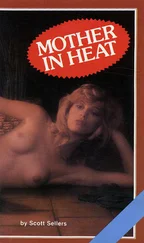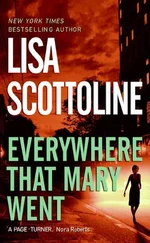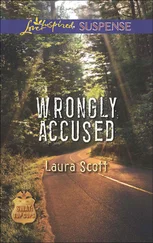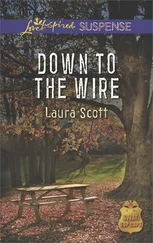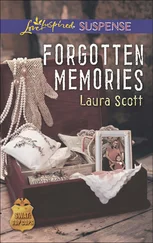Leroy Scott - To Him That Hath
Здесь есть возможность читать онлайн «Leroy Scott - To Him That Hath» — ознакомительный отрывок электронной книги совершенно бесплатно, а после прочтения отрывка купить полную версию. В некоторых случаях можно слушать аудио, скачать через торрент в формате fb2 и присутствует краткое содержание. Жанр: foreign_prose, Зарубежные любовные романы, на английском языке. Описание произведения, (предисловие) а так же отзывы посетителей доступны на портале библиотеки ЛибКат.
- Название:To Him That Hath
- Автор:
- Жанр:
- Год:неизвестен
- ISBN:нет данных
- Рейтинг книги:4 / 5. Голосов: 1
-
Избранное:Добавить в избранное
- Отзывы:
-
Ваша оценка:
- 80
- 1
- 2
- 3
- 4
- 5
To Him That Hath: краткое содержание, описание и аннотация
Предлагаем к чтению аннотацию, описание, краткое содержание или предисловие (зависит от того, что написал сам автор книги «To Him That Hath»). Если вы не нашли необходимую информацию о книге — напишите в комментариях, мы постараемся отыскать её.
To Him That Hath — читать онлайн ознакомительный отрывок
Ниже представлен текст книги, разбитый по страницам. Система сохранения места последней прочитанной страницы, позволяет с удобством читать онлайн бесплатно книгу «To Him That Hath», без необходимости каждый раз заново искать на чём Вы остановились. Поставьте закладку, и сможете в любой момент перейти на страницу, на которой закончили чтение.
Интервал:
Закладка:
And then came a change in his view-point. He found himself thinking, not of Morton the individual, Morton his friend, but of Morton in his relation to these people. What great good he had brought them! How dependent they had been upon him, how they now clung to him and were lifted up by his memory! And how they loved him!
But what would they be saying about him a week hence?
The question plunged into David like a knife. He hurried from the chapel and upstairs into Morton's study. Here was the most ghastly of all the consequences of Morton's deeds. What would be the effect on these people of the knowledge he had gained that afternoon? They were not discriminating, could not select the good, discard and forget the evil. He still loved Morton; Morton to him was a man strong and great at ninety-nine points, weak at one. Impregnable at all other points, temptations had assailed his one weakness, conquered him and turned his life into complete disaster. But, David realised, the neighbourhood could not see Morton as he saw him. They could see only the evils of his one point of weakness, see him only as guilty of larger sins than the most sinful of themselves – as a libertine, an embezzler, a suicide.
And they would be helped to this new view by the elements he had fought. How old Boss Grogan would rejoice in Morton's fall – how his one eye would light up, and triumph overspread his veinous, pouched face! How he and his henchmen, victory-sure, would return to their attack on the Mission, going among its people with sneers at Morton and at them!
There was no doubt in David's mind of the effect of all this upon them. The words of a shrivelled old woman who had given tribute in the chapel stayed in his memory. "He has been to me like St. Christopher, what this place is called from," she had quavered. "He holds me in his arms and carries me over the dark waters." Exactly the case with all of them, David thought. Morton, who had lifted them out of darkness, was supporting them over the ferry of life – till a few days ago by his presence among them, now and in the future by the powerful influence in which he had enarmed them. Once they saw their St. Christopher as baser than themselves [and what a picture Grogan would keep before their eyes!], they would call him hypocrite, despise his support and the shore whither he carried them; his strength to save them would be gone, and they would fall back into the darkness out of which they had been gathered.
David's concern was now all for these unsuspecting hundreds mourning and praising Morton in the chapel. Presently, amid the chaos in his mind, one thought assumed definite shape: if the people were kept in ignorance, if Morton were kept pure in their eyes, would not their love for him, the saving influence he had set about them, remain just as potent as though he were in truth unspotted? Yes – without doubt. And then this question asked itself: could they be kept in ignorance? Yes, if the embezzlement could be concealed – for Morton's relations with Lillian Drew and his suicide would come before the public only by being dragged, as it were, by this engine of disgrace.
David's whole mind, his whole being, was suddenly gripped by the thought that by concealing the embezzlement he could save these hundreds of persons from falling back into the abyss. But how conceal it? The answer was ready at his mind's ear: by replacing the money. But where get the money? He had almost nothing himself, for the little fortune from his father with which he had been eking out his meagre earnings was now in its last dollars, and he had hardly a friend in New York. Again the answer was ready: take into the secret some rich man interested in the Mission – he'd gladly furnish the money rather than have St. Christopher's dishonoured.
This idea rapidly shaped itself into a definite plan. At half-past nine David left the study and descended the stairs, with the decision to complete the lesser details of his scheme that night, leaving only the getting of the money for the morrow. The moment he stepped into the never-quiet street, he pressed back into the shadow of the club-house entrance, for out of the chapel was riling the mourning crowd – some of the women crying silently, some of the men having traces of recent tears, all stricken with their heavy loss. Yes, their loss was grievous, but, God helping him, that which was left them they should not lose! – and David gazed upon them till the last was out, with a tingling glow of saviourship.
Half an hour later he was standing before the apartment house he had visited that afternoon. A dull glow through Lillian Drew's shades informed him she was at home; and, glancing through the open basement window into the janitor's apartment, he saw his guide of the afternoon stretched on a shabby lounge. He was not proud of the part he was about to play; but for Lillian Drew to remain in town – danger was in this that must be avoided.
That afternoon he had noticed there was a telephone in the house. He now walked back to a drug store on whose front he had seen the sign of a public telephone. He closed himself in the booth, and soon had Lillian Drew on the wire.
"This is a friend with a tip," he said. "I just happened to overhear a man ask a policeman to come with him to arrest you."
"What was the man like?" came tremulously from the receiver.
David began a faithful description of himself, but before he was half through he heard the receiver at the other end of the wire click into place upon its hook. He returned to where he had a view of the entrance of the apartment house, and almost at once he saw Lillian Drew come hurriedly out. He then walked over to Broadway, asked a policeman to arrest a woman on his complaint, and led the officer to the apartment house.
He rang the janitor's bell, and after a minute it was answered by his "safe" friend. He put on his most ominous look. "Is Lillian Drew in?" he demanded.
"No; she just went out," the janitor answered, glancing in fear at the policeman.
The officer gave him a shove. "Bluffin' don't work on me. You just take us up, you old booze-tank, and we'll have a look around for ourselves."
They searched the flat, followed about by the frightened black maid, but found no Lillian Drew. As they were leaving the house David again directed his ominous look upon the janitor. "Don't you tell her we were here," he ordered; and then he whispered to the policeman, but for the janitor's ears, "I'll get her in the morning."
He walked away with the officer, but quickly returned to his place of observation. He saw the janitor come furtively out and hurry away, and in a little while he saw Lillian Drew enter – and he knew that the janitor, who had summoned her, had told of her narrow escape and of the danger in which she stood.
He wandered about, passing the house from time to time. Toward twelve o'clock, when he again drew near the house, the great van of a storage warehouse was before it, and men were carrying out furniture. Beside the van stood an express wagon in which was a trunk, and coming out of the doorway was a man bearing on his back another trunk, from the end of which dangled a baggage check. As the man staggered across the sidewalk, David stepped behind him, caught the tag and read it by the light that streamed from the entrance. The trunk was checked to Chicago.
Lillian Drew would make no trouble. One part of his plan was completed. Half an hour later David was back in Morton's study, beginning another part of his preparation. To prevent suspicion when the Boys' Farm Committee discovered the replaced money, to make it appear that the drawing of the fund was no more than a business absurdity such as is normally expected from clergymen, David had determined to surround the presence of the money in the safe with the formality of an account. At the head of a slip of paper he wrote, "Cash Account of Boys' Summer Home," and beneath it, copying from the stubs of the cheque-book: "June 7, Drawn from Bank $500"; and beneath this, under their respective dates, the six other amounts. Then at the foot of these he wrote under date of September fifteenth, the day before Morton's death, "Cash on hand, $5,000."
Читать дальшеИнтервал:
Закладка:
Похожие книги на «To Him That Hath»
Представляем Вашему вниманию похожие книги на «To Him That Hath» списком для выбора. Мы отобрали схожую по названию и смыслу литературу в надежде предоставить читателям больше вариантов отыскать новые, интересные, ещё непрочитанные произведения.
Обсуждение, отзывы о книге «To Him That Hath» и просто собственные мнения читателей. Оставьте ваши комментарии, напишите, что Вы думаете о произведении, его смысле или главных героях. Укажите что конкретно понравилось, а что нет, и почему Вы так считаете.

